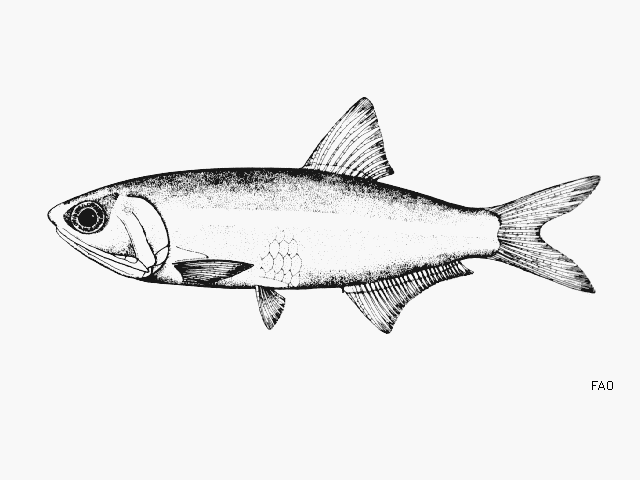| Engraulidae (Anchovies), subfamily: Engraulinae |
| 14 cm TL (male/unsexed) |
|
pelagic-neritic; depth range 1 - 2 m |
| Western Central Atlantic: Trinidad and westward to Margarita Island and the Gulf of Venezuela; reaches Cartagena in Colombia if the reported occurrence there (Ref. 5518) is correct. |
|
Dorsal spines (total): 0-0; Anal spines: 0-0; Anal soft rays: 23-27. Snout sharply pointed but short, less than eye diameter; maxilla long, tip pointed, reaching almost to gill opening; gill cover canals of panamensis-type. Anal fin moderate, its origin below or just before midpoint of dorsal fin base. A silver stripe along flank, less than eye diameter. |
| Occurs in shallow coastal waters, sometimes in large schools, and also in mangrove-lined lagoons in turbid water. On the southern coast of Margarita Island, they appear mainly in February to May at 5-7 cm SL, while larger individuals occur throughout the year in the interior of lagoons. More data needed on food and breeding. |
|
Data deficient
(Ref. 96402)
|
| harmless |
|
Source and more info: www.fishbase.org. For personal, classroom, and other internal use only. Not for publication.
Page created by Jen, 05.08.02,
php script by kbanasihan 06/09/2010 ,
last modified by
dsantos, 20/08/10

